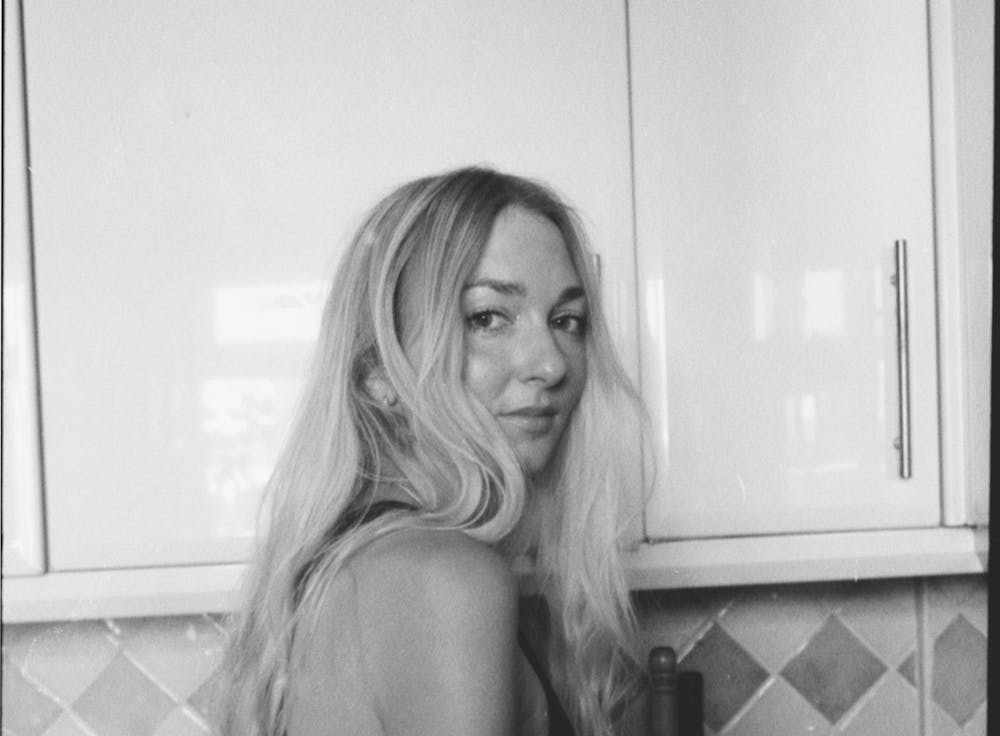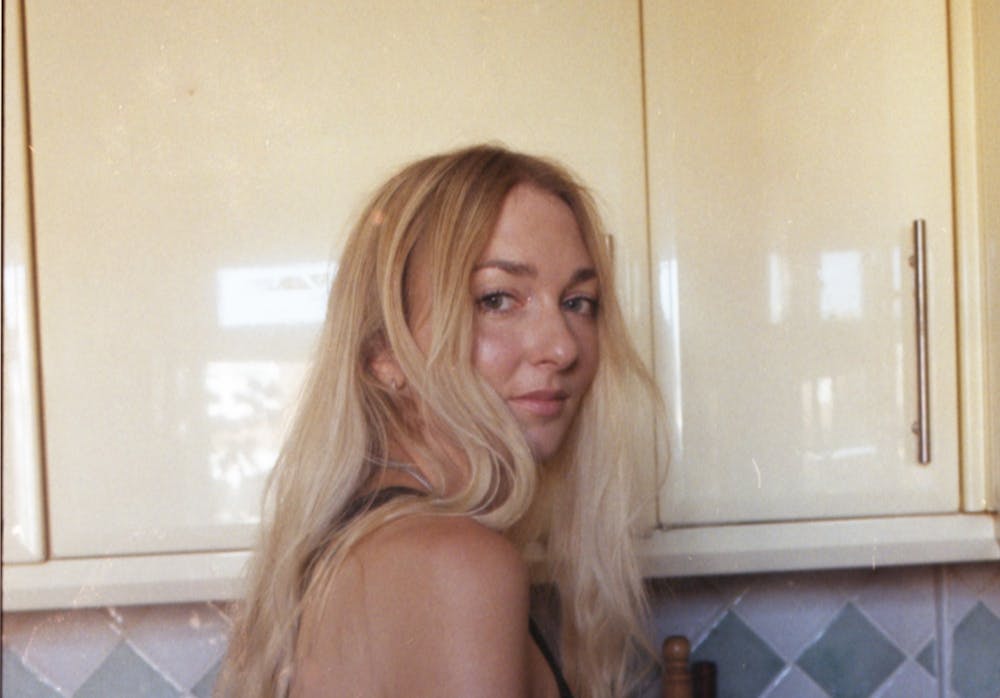Marie Dahlstrøm is a Danish singer/songwriter who has been studying music her whole life. Her past releases, beginning in 2011, include multiple EP's and a cover project. 'Like Sand,' released independently on May 22, is her debut studio album. The record is a gorgeous, warm exploration of her career thus far: every sound on this record drips with influences ranging from buttery R&B, to smooth jazz, to hard–hitting hip–hop beats. Featuring friends and longtime collaborators including Beau Diako, Jeremy Passion, James Vickery, Elijah Fox, Charles Jacques, and Aligo, 'Like Sand' can be summed up in one word: vibes. Street's Kyle Whiting sat down with Marie to discuss her new album, making music as an independent artist, and how the industry has changed as a result of COVID–19.

Marie: Hi! My name is Marie Dahlstrøm. I'm from Denmark. I've lived in London for a while now to study music, and I've been writing since then.
Street: You've been releasing music at least for the past 10 years or so. How has your writing process and production process changed over time? Like Sand has a lot of collaboration, which is different from your previous work. How has your creative process changed over the past decade?
Marie: In a way, I don't feel like it has changed much. With time, you refine your process a lot. And you start figuring out all the things you first struggled with. I see some of the things my younger peers are struggling with, and I'm like, "Oh, my buddy, actually, I did used to find this difficult or something."
But with that process of thinking, "Hey, I want to make a song. Then, hey, I'm trying to write a song. Now I'm going to produce a song. Then I'm going to release a song, then I'm going to try to promote the song. Then I'm going to repeat, repeat, repeat, and repeat." Doing that over, and over, and over again, as a managerial process in yourself, really strengthens your ear, your administrative skills, and your creative process as well.
When I wasn't as experienced, I would be in the middle of creating a song, and I would start evaluating if the song was good enough or not. And that would kind of take me out of my creative zone and into a more evaluative zone. I would move so quickly through the creative process, because I would be insecure about my work. After that, when it came to releasing the songs, I would be really stressed about the mixing process. I would try out 10,000 headphones, because I didn't know what I was listening for. None of those things stress me out anymore. I'm never stressed about mixing now. I've learned that you have to go through those steps to get to the right result. I've learned to eliminate those doubtful thoughts [that occur] early on. Making this album, being able to take all those years of experience into consideration, has actually been a super nice process.
I've made most of it at home, some of it in L.A., and mixed some of it in New York. It's just felt nice and purposeful, and with songs that I picked! No team, no A&R and all of that bullshit, who are like, "Oh, no, I think this is not good." I'm so done with any of that shit. I'm so done with any kind of label capacity, where people feel like they're superior because they work for the label. I'm absolutely against it. That's been such a nice process to just learn that you could just rely on your own ear, and your own opinions. And if you, in some kind of place in your body, relate to it, someone, somewhere, will too.

Street: I also wanted to talk about a little bit of some of the influences on this album. There's a lot of R&B and soul and jazz and hip–hop sounds all across it—do you mind talking a little bit more about the aesthetic you were thinking of to create Like Sand?
Marie: I've tried to actually avoid thinking about exactly what I wanted it to sound like, or who was my main inspiration. Instead, I just decided to write the songs that come to me naturally. Whatever comes, whatever sounds great, I'm just going to embrace, because I'm writing all the songs anyway.
I've noticed in the process of making music, I listen to very little music. So whenever I delve into my inspiration, it's the inspiration that I've had for years! The same jazz albums, the same Swedish pianist … I really like some of the big R&B/Soul and neo–soul classics. Erykah Badu, Lucy Pearl, A Tribe Called Quest, Slum Village. All these different big groups that I've always been listening to. Gospel music, too, has inspired me a lot.
To find inspiration for Like Sand, I've almost avoided listening to music. I didn't want to be too inspired. The modern sound kind of manipulates your ear a little bit. It makes you feel like everything has to be auto–tuned, or has to be super loud, or has to be between 5–10 different trap sounds. I really didn't want to be influenced by any of that.
So without thinking too much about it, I naturally kind of went away from listening to music, and more just like into my head. Because I think once you sit down and you make a chord progression, or you have a session with the people that you want on the song, natural things happen in the conversation or whenever you felt that day, and it comes out in the music. That in and of itself is more inspiration than just listening to other artists or other music.
Street: That definitely comes through across the album. I wouldn't necessarily say it sounds like anything else, but there are certainly distinct moods and elements of genre. The talkbox solo on "Home With You," all of the guitar and jazzy piano stuff that's littered throughout, too. But also, some of the drum programming feels a little bit more modern to my ears too, which kind of like grounds it for me, which I really like as well.
Marie: Yeah! I feel like that with the drums and the chords. When you work with a certain producer, I think it's really important to represent them for who they are. If you micromanage the music process too much—instead of trusting other people's ability—you can hinder the creation process without knowing.

Street: You've been releasing music for nine years now, but Like Sand is your debut project. What was the decision to wait so long before dropping your first big studio album?
Marie: I consider making music a lifelong thing. I look at Herbie Hancock, and he's 80, and he's killing it. I don't want it to have that stigma where people think you have to be 19 your whole life to make music. I think that's so dumb. I think the COVID–19 crisis has shone a light on a lot of things. What really matters, how much of this world is quite ridiculous.
Street: And there's massive repercussions in the music industry, specifically, with all of this. Sales, streams, performances, everything is on a downturn. But when you're making music that matters to you, and music that says something that you want to say, at the end of the day, that's what people really grab on to when the bells and whistles of celebrity superstardom are gone. That's what's really important.
Marie: Yeah. A lot of the content and lyricism in a lot of pop music is about turning up and going to the club and all these kind of different things. But with everything that's going on now, it's just you, and you're in your pajamas at home. Maybe that makes people think of music differently. I hope so.
Marie Dahlstrøm's Like Sand is available to purchase and stream here.

